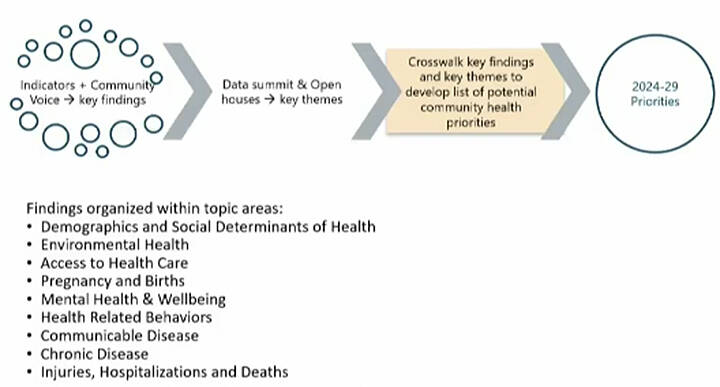When Poulsbo Mayor Becky Erickson’s husband wanted to have fun years ago, “There was so much trash in the bay he couldn’t water ski.”
She applauded cleanup efforts since then but added much more could be done.
Erickson spoke after listening to the Water Quality Annual Report at the Kitsap Public Health District board meeting Jan. 2. She is on the board. John Kiess, Environmental Health director, and Grant Holdcroft, program manager, gave the report.
Stormwater ponds are one area of concern. “Stormwater ponds all over the county are filled with ducks pooping” and that ends up in the bay, she said.
Another concern of hers is the cement vaults that are taking the place of stormwater ponds. “There’s no water quality treatment” with them either, she said. “We’re going in the wrong direction with our building standards.”
Kiess agreed with Erickson regarding the ponds. “They are incubators for bacteria,” and that’s why the trend is to use the vaults. It was explained that sediment settles in the vaults similar to a septic tank.
Holdcroft said stormwater maintenance includes cleaning the vaults with a vector, so it’s not “piped off into the bay.”
Board member Stephen Kutz of the Suquamish Tribe asked about medicines being flushed down toilets. Holdcroft and Kiess both said great progress has been made letting the public know that’s bad for water quality. Plus, medicine “take back” programs are collecting lots of unused medicines.
Board member and County Commissioner Christine Rolfes asked who checks for issues at water treatment plants. Kiess said the state Department of Ecology does that often.
Board member and Bainbridge Island City Councilmember Kirsten Hytopoulos asked about checking the shorelines on BI where people use septic tanks. Holdcraft said BI Public Works and the county walk the beaches and grab water samples. They both thoroughly investigate the entire area to chase down the source of the pollution.
In introducing the topic, Kiess said water is the most important natural feature in Kitsap County. He said in the old days people knew not to go water skiing after rainy days. Now, people can play in the water, “and feel quite comfortable.”
A lot of that is “due to work before us” in the mid-1990s, he said, adding Kitsap is a leader nationally on the issue.
Holdcraft said the county concentrates on fecal pollution. He said during summer samples for E. coli are taken in areas where people swim. He said they post advisories for people and pets to stay out of the water when levels are too high. Last summer that happened three times at Kitsap Lake, for example. He said dogs are susceptible to toxic bacteria, as it can cause illness and even death.
Health assessment
Also at the meeting Siri Kushner, Public Health Infrastructure Division director, talked about the recently released Community Health Assessment.
Kushner said the assessment has been done since 2011, and priorities have been: access to care, healthy eating and living, youth support, economic well-being, well-being, substance use and housing.
She mentioned 15 priorities that need to be whittled down in the next few months. They include: homelessness, education, healthy eating, basic needs met, housing, gaps in access, recruit workforce, train workforce, along with more OB providers, more mental health and substance experts, and more suicide, depression and STD providers. Also on the list are chronic diseases, injury prevention and drug overdose, and the populations most affected of them.
A meeting will take place from 9 a.m to noon Feb. 8 at the Norm Dicks Government Center to discuss priorities.
Kushner said the goal of the assessment is to share information with the public and get health partners collaborating to solve problems.
Board member and Bremerton Mayor Greg Wheeler said he hopes since he wears two hats he’d like to see the priorities narrowed. For example, he said when it comes to emerging issues he would name one issue for the city and another as a board member. He would like to see the list made so, “It’s where I can use it with both those hats.”
Kuntz said he would like to see the priorities listed to help them understand which issues are “something that really might make an impact.”
Rolfes said 10 years ago she recalled dental care on the list. Kushner said it actually never advanced to the priority level.
Wheeler said homelessness is such a broad issue. He said to “minimize it would be a mistake, but to focus incorrectly also would be a mistake.”
Kushner responded saying they should not try to do everything, but to come up with strategic action.
Board member Tara Sell said it would be difficult for the health department to ensure affordable housing because for others the “ball would be in their court.”
Other news
New health administrator Yolanda Fong said the state Department of Health is coming up with new rules on septic tanks, so the county will be updating its law as well. She also said the KPHD is in the midst of a campaign to encourage people to get vaccinated.
Finally, Sell was elected board chair, taking the place of Erickson, who fulfilled her one-year term.



